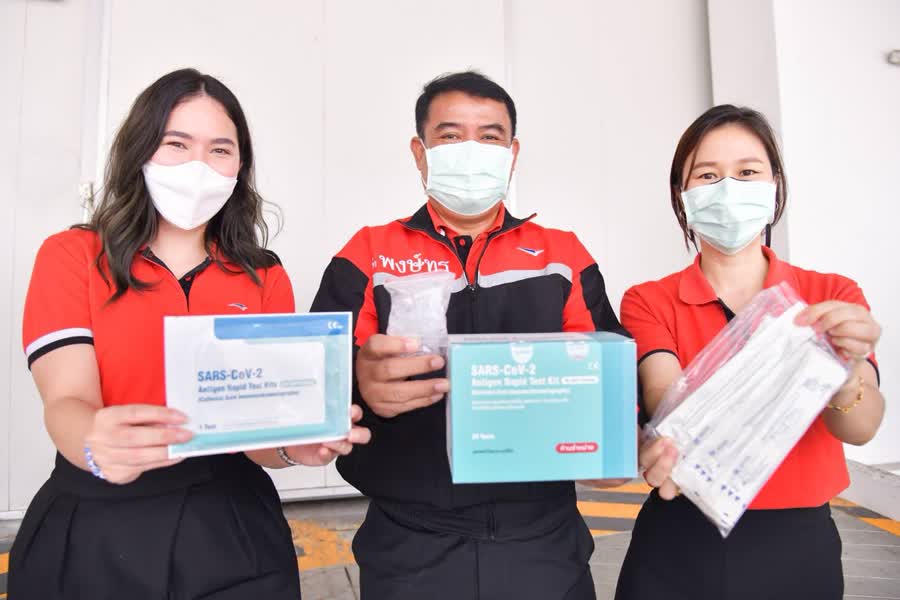
The first shipment of three million Antigen Test Kits (ATK) from a total 8.5 million purchased by the Government Pharmaceutical Organization (GPO) has arrived, with the agency claiming the acquisition was transparent and that the kits will be quickly distributed by Thailand Post Co., which was hired by GPO partner World Medical Alliance (Thailand).
Members of the news media were invited to view the SARS-CoV-2 Antigen Rapid Test Kits produced by the Beijing Lepu Medical Technology Co and imported by World Medical Alliance (Thailand). All three million are being kept at a Thailand Post warehouse in Bangna district at under 30 degrees Celsius and are to be express delivered in refrigerated trucks.
World Medical Alliance executives advised that the rest of the order will arrive over the course of next week with four million kits to be delivered on Monday and 1.5 million on Tuesday. They must first be tested over a five-day period.
GPO Director Dr. Witoon Danwibul and his deputy director Sirinuch Chiwanisannukul, accompanied by GPO specialist Nantakan Suwanpitakakaul, stated in a press conference that the purchase was lawfully carried out, as the GPO, under a 2018 law, is exempt from the 2017 Purchasing Act and was cleared by the Comptroller General’s Department to carry out the acquisition.
On why the GPO chose a foreign producer rather than one that was already registered with it, the executives explained they didn’t wish to compete with companies that had already imported ATKs, adding those purchases would require a two to three-month long Food and Drug Administration review.
The arriving kits are to be randomly analyzed by Ramathibodhi Hospital physicians before being distributed to all 76 provinces, and pharmacies selected by the National Health Security Office. The emphasis will be on at-risk areas. Citizens in need of the test kits will have to register and be evaluated via the Pao Tang application, which will direct them to a pharmacy if they pass the vetting. (NNT)
 |
 |
 |





